This site was created specifically for people from Canada, for quick acquaintance with the gambling industry online. In today's article, you can know all about How to be COVID-Safe at the Casino in Canada. Our Canadian visitors have asked us so many times to write the review of "Coronavirus Prevention Tips: A Guide for Live Poker Players, How to be COVID-Safe at the Casino in Canada" because of high interest in this topic. Well, the thorough investigation by our gambling expert had been already finished and we have collected here all useful information about How to be COVID-Safe at the Casino in Canada in one review. You may read it now!
How to be COVID-Safe at the Casino in Canada
"There's no need to wear surgical masks in the US," stated University of California professor and infectious disease expert Dr. Charles Chiu. The same article, which was published long before the coronavirus was even a thing, stresses the fact that "touching your mouth or nose can spread the flu."
Coronavirus Prevention Tips: A Guide for Live Poker Players
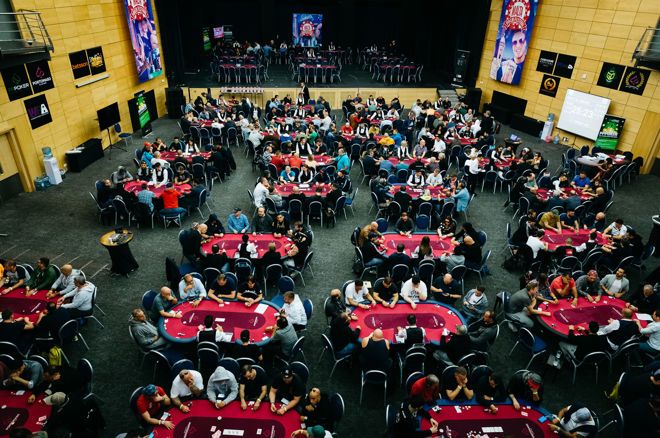
We understand this is not your usual PokerNews article. However, the latest news about the coronavirus (2019-nCoV) epidemic convinced us of the opportunity to discuss the issue with our readers. Here we offer a few proven prevention tips to those travelling the circuit to play live poker.
On January 29, British Airways announced the decision to stop all flights to and from China as a precautionary response to the coronavirus outbreak.
As reported by the Wall Street Journal's reporter Stephanie Yang, the decision came as several countries started to repatriate citizens located in the most at-risk areas of Mainland China.
Nearly a month since the World Health Organization (WHO) reported on the first cases of pneumonia caused by an unknown virus in China's province of central Hubei, the coronavirus has infected people in 12 different countries.
Although WHO Director Tedros Adhanom Ghebreyesus explains the outbreak "has not yet become a global health emergency," we believe this top be a good time to look at a few basic prevention measures we can all adopt to avoid the infection.
The online poker festival features 34 action-packed tournaments with more than $1.4 million in guaranteed prizes.
What Does This Have to Do with Poker?
Poker players are not more exposed to the risks of coronavirus' infection than anyone else — although there are some circumstances where a few simple measures can make a big difference.
Live tournament poker is as safe as it has ever been. In terms of health hazards, playing at a live tournament event is no different than standing on a subway train or queuing for a frappuccino at Starbucks.
So, why an article about coronavirus prevention tips for poker players?
In its first reports of clinical data from initial cases of the 2019 novel coronavirus, Lancet shares that "education campaigns should be launched to promote precautions for travellers, including frequent hand-washing, cough etiquette, and use of personal protection equipment (eg, masks) when visiting public places."
To follow up on Lancet's suggestion, we decided to share with all of you a series of prevention tips that will help you avoid the coronavirus infection, enjoy your live poker games, and focus on the only thing that matter: winning your poker hands.
With more than 200 online tournaments on the schedule and over $10m in guarantees — this is the best poker you can play in February.
Wash your hands frequently
As simple as it sounds, washing your hands frequently is (by far) the most powerful tool in your infection prevention arsenal.
According to the Centres for Diseases Control and Prevention (CDC), the best way to do it is to "wash your hands often with soap and water for at least 20 seconds."
As a poker player, this is particularly important. You are always bound to touch surfaces that have been touched by multiple people.
From the poker chips to the cards at the table, many of the things you will come into contact at a casino are a potential vehicle of germs.
But you don't need to come across something as serious-sounding as the coronavirus to understand it's good to wash your hands every now and then.
Just head to the restroom during the break, put your hands under the water for 20 seconds, and stop worrying about what could happen if you didn't.
P.S. If you don't have time for that, a bit of hand sanitiser will do the trick.
Stop touching your your face [i]that[/I] often
An old article published on November 15, 2012, in the journal Clinical Infectious Diseases reports that "people touch their faces an average of 3.6 times per hour, and common objects an average of 3.3 times per hour."
The same article, which was published long before the coronavirus was even a thing, stresses the fact that "touching your mouth or nose can spread the flu."
Here's a piece of advice, then: don't do it.
When there are viruses around, touching one's mouth and nose is possibly the easiest (and stupidest, perhaps?) way to transfer them between their face and their hand.
Limiting the number of times we touch our nose and mouth is one of the best and most effective ways to prevent "self inoculation" and stay healthy.
And if you are a nail-biter, you now have the perfect excuse to stop this terrible habit.
Cover your cough or sneeze with a tissue
Here's another one that you should be doing anyway, regardless of any risks of serious infections.
Coughing or sneezing on your hand before you touch cards or you play a chip trick? Not cool.
Wiping your hands clean on your trousers (or the back of your chair?) to then restart to fiddle with chips as if nothing has happened? It's beyond 'not cool. Believe me.
Poker is a community card game where we all share many things together. And etiquette has a role in it too.
Coughing and sneezing are fine. Just cover your mouth and nose with a disposable tissue and throw it away.
Don't re-use the same tissue more than once. (yack.) And if you don't want to think about the coronavirus, think about common decency.
You are at the table with other players and a dealer. No one is interested in what's in your tissue — so use it, fold it, and throw it away.
The new 'Aurora' game engine is going to change everything. See what's new on the world's largest poker site.
You can leave the surgical mask at home
On January 28, CNN's Scottie Andrew reported on "a run of surgical masks" in the US due to the coronavirus scare.
Apparently, some major retailers are selling out on basic surgical masks as people feel these can help them reduce the risk of infection.
Planning to get yourself one?
Before you show up at a poker room with a surgical mask on, read this.
"There's no need to wear surgical masks in the US," stated University of California professor and infectious disease expert Dr. Charles Chiu.
"There's no evidence that [wearing face masks] is going to help prevent that infection."
Similarly, a paper by Columbia University, explains how the use of surgical masks is not proven to have any effects in preventing infections and should not be seen as a replacement of the basic persona hygiene measures mentioned earlier.
"Wearing a mask doesn’t mean you should avoid tried and true hygiene practices," Professor of epidemiology at Columbia’s Mailman School of Public Health, Stephen Morse said.
If you want to help yourself and stay healthier, "Wash your hands frequently, keep away from people who are coughing or sneezing, cover your coughs and sneezes, don’t touch your mouth nose, or eyes after touching an object that may be contaminated."
Coronavirus Prevention Tips: A Guide for Live Poker Players
COVID-19 Information
As of April 8, 2021 Niagara Falls is part of the Provincewide Stay-at-Home Order. Everyone must follow the rules (orders) under the Emergency Management and Civil Protection Act and the Reopening Ontario Act.
- Only go out for essential reasons; work remotely, where possible.
- Indoor gatherings with people outside of your household are not permitted (with exceptions for those who live alone who can gather with one other household). Gatherings outside are limited to 5 people.
- Travel between regions is not recommended to help stop the spread of COVID-19.
What does the Stay-at-Home Order mean for Niagara Falls?
- Attractions, museums, galleries, historic sites, waterparks, zoos are closed.
- Performing arts, casino and gaming facilities remain closed.
- Restaurants, bars and other food and drink establishments may only be open for take-out or delivery, including alcohol. Patios are not permitted to be open.
- Only essential retail stores may be open for in-person shopping (grocery, pharmacy, cleaning products, personal care products, pet supplies). Non-essential stores may be open for curb-side pickup or delivery only, by appointment. Big box stores will be limited to selling only essential items.
- Accommodations remain open with enhanced health and safety protocols in place; pools, fitness centres, spas and event spaces are closed.
- Public parks remain open; physical distancing from others must be maintained.
Canada/USA Border Update:
The Canada/USA border continues to be closed to all non-essential travel until at least April 21, 2021. Updates will be provided as they become available.
The Return of Live Casinos Ensure a Safe Environment During COVID-19
by Marc Berman September 1, 2020, 11:11 am
As our nation remains in search of a vaccine for the dreaded COVID-19 virus, life as we once knew continues to cautiously return to some sort of normalcy. This is a long and quite arduous process, of course, and one where absolutely every safety measure must be incorporated.
For individuals surviving the lengthy quarantine, a virtual world complete with increased TV usage, Zoom meetings for business executives, take-in food orders, at home exercising, and the rise of casinos like online Casino Netherland, to name a few, kept us active and busy. While there is every expectation these activities will remain popular options as we continue to battle the pandemic, the return to the live casino arena, for example, is underway complete with a series of new rules and regulations.
In Las Vegas, a number of casinos are now live again (including The Bellagio, Caesars, MGM Grand, New York-New York, Circus Circus, The Golden Nugget, Planet Hollywood, and the Venetian). For anyone staying at these establishments, a mobile check-in is the new norm instead of the once lengthy lines amid a crowd of people. Self-serve express kiosks available to check-in also allows people to avoid lines at the check-in desk and get a physical key card.
All hotel guests must have their temperatures taken on arrival, and properties must have medical crews on site at all times. There also must be designated areas where visitors can be tested for COVID-19 and wait for the results. And every hotel must have masks available for guests, who will be strongly encouraged to wear them.
“Wearing mask coverings save lives, period. End of story,” said Steve Sisolak at a press conference. “We owe it to each other to accept the fact that wearing face mask coverings saves lives.”
Anyone who refuses to wear a mask will be directed to leave the property.
On the Casino Floor
Chairs and stools are in front of every other gaming machine. Properties must regularly disinfect gaming machines, chairs and other equipment, and dealers must offer card players a complimentary pump of sanitizer between hands.
Slot machine usage is limited to every other one, table games like Blackjack and craps have a maximum of just three players, and all employees, dealers and participants must wear face masks.
Additionally, gathering in groups – certainly a former and recent occurrence in Las Vegas – will be prohibited. Gaming authorities want casino employees to make sure guests don’t bunch together.
Dining and Entertainment
At restaurants in Las Vegas, guests have digital menus to view on mobile devices. To stop groups congregating while they waiting for a table, guests receive text notifications when their seats are ready.
Las Vegas, of course, is known for its extensive offering of live shows – music and magic, in particular. But events with live performances and live performers are not allowed with spectators. However, for the purpose of broadcasting or live streaming certain events are allowed under specific restrictions, but they will not include a live audience or spectators.
While many businesses will be able to open, nightclubs and day clubs, live sporting event venues and live performance venues with live audiences and adult entertainment establishments will remain closed.
Gov. Sisolak reinforced that practicing social distancing, maintaining 6 feet of space among individuals, wearing face coverings and limiting unnecessary social interactions are essential to help stem the spread of COVID-19 in Nevada.
How to ward off coronavirus in your hotel room

This post contains references to products from one or more of our advertisers. We may receive compensation when you click on links to those products. Terms apply to the offers listed on this page. For an explanation of our Advertising Policy, visit this page.
As the novel strain of coronavirus that causes the severe respiratory disease known at COVID-19, continues to spread around the globe, the travel industry is taking some serious hits.
Airlines are cancelling services and offering flexible cancellations: major world celebrations and gatherings have been cancelled, and some countries have even closed their borders. Travelers are fearful about traveling and are taking measures into their own hands to prevent infection — including cleaning their own hotel rooms.
The CDC reports that COVID-19 is most commonly contracted through human-to-human contact.
TPG asked Kelly A. Reynolds, a professor and environmental microbiologist at the University of Arizona what precautions travelers should take and whether hotel rooms should be a concern during this outbreak.
“Respiratory agents, including cold and flu viruses, can persist on surfaces for hours to days. Since it’s impossible to know if the person who stayed in the same room before you harbored an illness, it’s best to be proactive with wiping down surfaces with a disinfecting wipe and increasing your hand hygiene practice.” says Reynolds.
Here’s what you should do to stay healthy on the road:
Head straight to the sink

The CDC recommends washing your hands often with soap and water for at least 20 seconds. (Photo by Jay Yuno/Getty Images)
Wash your hands. Prior to entering your room, you probably touched doorknobs, elevator buttons and maybe even took public transit. All of these touch points are places where germs may linger.
“Hand washing remains your best defense for infection prevention. Remember to pack your own disinfecting wipes. I often bring my own pillow too, since hotel pillows could be full of allergens and residual saliva,” says Reynolds.
Get out the wipes

Clorox To Go travel disinfecting wipes kill 99.9% of viruses and bacteria. (Photo by AlexandrVedmed/Getty Images)
Your hotel room should be clean and tidy upon arrival, but that doesn’t mean the housekeepers did a deep clean of all the surfaces. To be safe, get out your Clorox To Go wipes and focus on disinfecting the surfaces that are known for being the germiest, such as the remote control, light switches, bedside lamp switches, the alarm clock, the phone, the bathroom sink — essentially any surface that is frequently touched.
Ditch the comforter

(Photo by Inti St Clair/Getty Images)
If you thought the comforter was safe because linens are changed between guests, think again. Comforters are typically washed on occasion, but rarely between guests. Various reports suggest that hotel comforters may only be washed four times a year. When you start to think of all the things people may put on their bed, like a suitcase for instance, you really start to question the cleanliness.
“Many hotel comforters are not designed for routine washing or the use of disinfectants in the wash. I recommend travelers remove the comforter to avoid potential contact with lingering bodily fluids that can harbor germs.” advises Reynolds.
If you’re the type of person who gets chilly, pack some cozy pajamas for your hotel stay.
Bottom line
In general, coronavirus is believed to be most commonly transmitted via human-to-human contact. There’s certainly the chance of contracting the virus through contact with contaminated surfaces, but according to the CDC, this is “not thought to be the main way the virus spreads.”
However, Reynolds says, “Our studies [at the University of Arizona] show that housekeeping may not be using proper disinfectant products or disposable cleaning tools. Reusable sponges and mops can spread contaminants to multiple rooms.”
There’s no harm in giving your hotel room an extra round of cleaning. To keep yourself safe during this outbreak, remember to be diligent about washing your hands and cleaning potentially contaminated surfaces. These are the best precautions you can take.
For more TPG news delivered each morning to your inbox, sign up for our daily newsletter.
Featured photo courtesy of AC Hotel Park City.
Infectious Disease Expert: Casinos Considered Low To Medium Risk For Coronavirus Exposure
LINCOLN (CBS13) — There are a lot of handles, buttons, and tables to touch if you’re going to gamble at Thunder Valley Casino.
It’s why Kioko Martins has her own stash of hand sanitizer and keeps a mask with her.
“I’m ready to go and it’s been a long time I haven’t been out here,” she said.
Dwayne West Jr. keeps his hands away from his face, hat, and mask.
“Just make sure I’m sanitizing and watching what surfaces I touch,” he said.
But even with safety protocols like thermal temperature checks, masks, and hand sanitizer over at Colusa Casino, gamblers are being warned about possible exposure just days after it reopened.
With more casinos reopening in the area, we wanted to know if it’s too soon. We turned to Dr. Jeffrey Klausner, professor of medicine and infectious disease expert at UCLA. He says exposures are more likely to occur indoors and when it comes to casinos specifically they are considered low to medium risk.
“I don’t think it’s too soon. I think we need California to be back to work and back to school and back to play. The original purpose of shutting down the state was to save the hospitals, the hospitals were saved,” said Dr. Klaunser.
Dr. Klausner says cleaning high-touch surfaces inside casinos is effective and an important way to reduce the further risk of spread. Thunder Valley says a special maintenance team works to disinfect and sanitizing is also done by dealers and team members after every use.
“You’re going to have somebody that it there wiping the slots machines wiping the table games down,” said Doug Elmets with Thunder Valley Casino.
For the most part, gamblers aren’t too worried.
“More hand sanitizer, more people be aware of each other,” Martins said.
“I think if everybody pays attention to doing what is necessary, you know everybody will be clean there won’t be the spread of the virus or anything like that,” said Daryl Zafferano.
Considerations for Casinos and Gaming Operations
As some casinos and gaming operations resume in some areas of the United States, CDC offers the following considerations for ways in which casino and gaming operators can help protect staff and customers and slow the spread of COVID-19. Casinos and gaming operations can determine, in collaboration with local, state, territorial, federal, or tribal health officials, whether and how to implement these considerations, making adjustments to meet the needs and circumstances of the local community. Implementation should be guided by what is feasible, practical, acceptable, and tailored to the needs of each community. For more information on bars and restaurants within casinos, please see CDC’s Considerations for Restaurants and Bars. These considerations are meant to supplement—not replace—any local, state, territorial, federal, or tribal safety laws, rules, or regulations with which businesses must comply.
Guiding Principles to Keep in Mind
The more an individual interacts with others, and the longer that interaction, the higher the risk of COVID-19 spread. The risk of COVID-19 spread increases in a casino or gaming setting as follows:
Lowest Risk
Even More Risk
Highest Risk
Lowest Risk
Gaming activities are only available in virtual or online format.
Casinos are open but with limitations to allow social distancing and disinfection of machines between uses.
Activities are limited to gaming machines and equipment that do not require a dealer and that can be played by one customer at a time and disinfected between uses.
Individuals remain spaced at least 6 feet apart (2 arms’ length) while seated or standing.
Sharing of gaming materials and equipment is not allowed.
Even More Risk
Casinos are open but with limitations to allow social distancing.
Games that require a dealer and that allow multiple players at the same time are offered, but the number of players is limited.
Individuals remain spaced at least 6 feet apart while seated or standing.
When possible, casino limits customers’ sharing of objects such as dice, card shoes, shufflers, and roulette wheels, Pai Gow tiles, pit podiums, blackjack discard holders, and toke boxes. Casino cleans and disinfects these objects between uses as much as possible.
When possible, casino limits sharing of items that are difficult to clean and disinfect, such as cards, and holds items for 72 hours before reuse of these items.
Highest Risk
Casino and gaming operations are open at full capacity.
Games that require a dealer and that allow multiple players at the same time are offered.
Individuals are not spaced apart while seated or standing.
Sharing of gaming materials and equipment is permitted with no restrictions.
Know How the Virus Spreads
The virus that causes COVID-19 is mostly spread by respiratory droplets released when an infected person talks, coughs, or sneezes. These droplets can land in the mouths or noses people who are nearby or possibly be inhaled into the lungs. It is thought that the virus may spread to hands from a contaminated surface and then to the nose or mouth, causing infection. Infected people can spread the virus whether or not they have symptoms. Therefore, personal prevention practices (such as handwashing, staying home when sick) and environmental cleaning and disinfection are important principles that are covered in this document.
Fortunately, there are a number of actions operators of casinos and gaming operations can take to help lower the risk of COVID-19 exposure and spread.
Promoting Behaviors that Reduce Spread
Casinos and gaming operations may consider implementing strategies to encourage behaviors that reduce the spread of COVID-19 among staff and customers.
- Staying Home when Appropriate
- Educate staff and customers about when they should stay home.
- Actively encourage staff and customers to stay home if they have symptoms of COVID-19 or have tested positive for COVID-19.
- Encourage staff and customers who have been exposed to someone with COVID-19 within the last 14 days to stay home and monitor their health.
- The best way to protect yourself and others is to stay home for 14 days if you think you’ve been exposed to someone who has COVID-19. Check your local health department’s website for information about options in your area to possibly shorten this quarantine period.
- Consult CDC criteria to inform policies on when staff can return to work and when customers can return to the casino if they had symptoms of COVID-19, tested positive for COVID-19, or were exposed to someone with COVID-19.
- Develop policies that encourage sick staff to stay at home without fear of being punished or losing their jobs, and ensure staff are aware of these policies. Educate staff when they can return to work.
- Educate staff and customers about when they should stay home.
- Hand Hygiene and Respiratory Etiquette
- Recommend and reinforce frequent staff and customer hand hygiene behaviors (e.g., before, during, and after touching gaming tokens, cards, and other frequently touched surfaces). Encourage handwashing with soap and water for at least 20 seconds. If soap and water are not readily available, provide hand sanitizer that contains at least 60% alcohol.
- Remind staff and customers to avoid touching their eyes, nose, and mouth.
- Encourage staff and customers to cover coughs and sneezes with a tissue or to use the inside of their elbow. Used tissues should be thrown in the trash and hands washed immediately with soap and water for at least 20 seconds.
- If soap and water are not readily available, provide hand sanitizer that contains at least 60% alcohol.
- Masks
- Recommend and reinforce the use of masks among staff and customers. Masks should be worn as feasible and are most essential in times when social distancing is difficult. Individuals should be frequently reminded not to touch the mask and to wash their hands frequently. Provide information to staff and customers on proper use, removal, and washing of masks.
- Note: Masks should not be placed on:
- Babies and children younger than 2 years old
- Anyone who has trouble breathing or is unconscious
- Anyone who is incapacitated or otherwise unable to remove the mask without assistance
- Note: Masks should not be placed on:
- Masks are meant to protect other people in case the wearer is unknowingly infected and does not have symptoms.
- Recommend and reinforce the use of masks among staff and customers. Masks should be worn as feasible and are most essential in times when social distancing is difficult. Individuals should be frequently reminded not to touch the mask and to wash their hands frequently. Provide information to staff and customers on proper use, removal, and washing of masks.
- Adequate Supplies
- Ensure you have accessible sinks and enough supplies for people to clean their hands and cover their coughs and sneezes. Supplies include soap and water, a way to dry hands (e.g., paper towels, hand dryer), tissues, no-touch/foot pedal trash cans (preferably covered), masks (as feasible), and hand sanitizer containing at least 60% alcohol (placed adjacent to every card table or table game, if supplies allow).
- Signs and Messages
- Post signs in highly visible locations (e.g., at entrances, in restrooms, on televisions) that promote everyday protective measures and describe how to stop the spread of germs, such as by properly washing hands and properly wearing a mask. Provide signs and messages in multiple languages.
- Broadcast regular announcements about reducing the spread of COVID-19 on PA systems. Include messages (for example, videos) about behaviors that prevent spread of COVID-19 when communicating with staff and customers (such as on business websites, in emails, and on social media). Ensure messages are culturally appropriate.
- Find free CDC print and digital resources in a variety of languages on CDC’s communications resources main page.
Maintaining Healthy Environments
Casinos and gaming operations may consider implementing several strategies to maintain healthy environments.
- Cleaning and Disinfection
- Clean and disinfect frequently touched surfaces (e.g., ATMs, door handles, cash registers, workstations, sink handles, bathroom stalls, table rails, chairs, buttons or touch points on gaming machines) within facilities at least daily and between uses as much as possible. Use disinfectants from EPA’s List N: Disinfectants for Coronavirus (COVID-19) external icon .
- Limit customers’ sharing of objects (e.g., items used in table games, dice, card shoes, shufflers, roulette wheels, Pai Gow tiles, pit podiums, blackjack discard holders, toke boxes) when possible, and clean and disinfect these objects between uses as much as possible.
- Clean and disinfect electronic gaming machines (e.g., slots, touch screen games) at least daily and between uses as much as possible.
- Consider placing wipeable covers over electronics.
- Follow the equipment manufacturer’s instructions for appropriate cleaning and disinfection procedures for machines and associated electronics.
- If no manufacturer guidance is available, consider the use of alcohol-based wipes or spray from EPA’s List N: Disinfectants for Coronavirus (COVID-19) external icon to disinfect machine buttons and touch screens. Dry surfaces thoroughly to avoid pooling of liquids.
- Develop a schedule for increased, routine cleaning and disinfection.
- Designate staff to clean and disinfect frequently touched surfaces for table games, gaming machines, and equipment.
- Ensure safe and correct use and storage of disinfectants, including storing products securely away from children. Use gloves when removing garbage bags or handling and disposing of trash. Wash hands after removing gloves.
- Ensure there is adequate ventilation when using cleaning products to prevent customers or staff from inhaling toxic fumes.
- Shared Objects
- Discourage sharing of items that are difficult to clean or disinfect.
- When possible, dealers should instruct customers not to touch cards or deal cards face up.
- For items that are not easily cleaned and disinfected (e.g., cards), place in a designated separate area for at least 72 hours before using these items again.
- Avoid sharing gaming items that are reusable, such as cards, dice, or gaming pieces. Clean and disinfect or replace items after a staff member or new customer comes into contact with them.
- Ensure staff have adequate supplies to minimize sharing of high-touch gaming equipment.
- Account for the frequent replacement of shared objects (e.g., dice, cards, chips) during table games to ensure there are enough gaming supplies.
- Use touchless payment options as much as possible, if available. Ask customers to exchange cash or card payments by placing payment on a receipt tray or on the counter rather than by hand to avoid direct hand to hand contact. Disinfect frequently touched surfaces such as pens, counters, or hard surfaces between use.
- Use disposable drink service items (e.g., utensils, cups, napkins). If disposable items are not feasible or desirable, ensure that all non-disposable food service items are handled with gloves and washed with dish soap and hot water, or in a dishwasher. Staff should wash their hands after removing their gloves or after handling used drink service items.
- Discourage sharing of items that are difficult to clean or disinfect.
- Ventilation
- Consider taking steps to improve ventilation in the building, in consultation with a HVAC professional, to increase total airflow supply occupied spaces, if possible.
- Consider increasing the percentage of outdoor air (e.g., using economizer modes of HVAC operations) potentially as high as 100% (first verify compatibility with HVAC system capabilities for both temperature and humidity control as well as compatibility with outdoor/indoor air quality considerations).
- Ensure that ventilation systems operate properly and increase circulation of outdoor air as much as possible, for example by opening windows and doors and prioritizing outdoor seating.
- Do not open windows and doors if doing so poses a safety or health risk to customers or staff (e.g., risk of falling or triggering asthma symptoms).
- Water Systems
- To minimize the risk of Legionnaires’ disease and other diseases associated with water, take steps to ensure that all water systems and features (e.g., sink faucets, decorative fountains, drinking fountains) are safe to use after a prolonged facility shutdown.
- Drinking fountains should be cleaned and disinfected frequently or closed if this is not possible.
- Modified Layouts and Procedures
- Change gaming layouts to ensure that staff and customers remain at least 6 feet apart, when feasible.
- Limit seating capacity to allow for social distancing. Limit the number of customers at gaming tables based on type of game to maintain at least 6 feet between customers.
- Limit seating by removing chairs to visually enforce maximum capacity at table games.
- Provide visual cues on the floor for where chairs should be placed to ensure 6 feet of distance between customers and the dealer.
- Discourage eating at game tables.
- Discourage customers from congregating around gaming and food service areas.
- Physical Barriers and Guides
- Install physical barriers, such as sneeze guards and partitions, particularly in areas where it is difficult for individuals to remain at least 6 feet apart (e.g., cash registers, gaming machines, between dealer and customer).
- Provide physical guides, such as tape on floors or sidewalks and signage, to encourage individuals to remain at least 6 feet apart (e.g., at gaming tables, entrances, in purchase lines).
- Communal Spaces
- Close shared spaces such as staff break rooms, if possible; otherwise stagger their use and restrict the number of people allowed in at one time to ensure everyone can stay at least 6 feet apart, and clean and disinfect between staff.
- Provide outdoor options for staff areas and meetings.
- Provide hand sanitizer containing at least 60% alcohol at designated eating staff areas.
Maintaining Healthy Operations
Casinos and gaming operations may consider implementing strategies to maintain healthy operations.
- Protections for Staff at Higher Risk for Severe Illness from COVID-19
- Offer options for staff at higher risk for severe illness (including older adults and people of all ages with certain underlying medical conditions) that limit their risk of exposure (e.g., telework and modified job responsibilities).
- Consistent with applicable local, state, territorial, federal, or tribal privacy and confidentiality laws and regulations, put in place policies to protect the privacy of people at higher risk for severe illness.
- Regulatory Awareness
- Be aware of local, state, territorial, federal, or tribal policies and recommendations related to group gatherings to determine if events can be held.
- Gatherings
- Avoid scheduling group events (e.g., large concerts, shows), gatherings, or meetings where social distancing of at least 6 feet between people cannot be maintained.
- Staggered or Rotated Shifts
- Stagger or rotate shifts to limit the number of staff on the floor at the same time.
- Stagger and limit playing times to minimize the number of customers in the establishment.
- Travel and Transit
- Encourage staff who use mass transit to consider using other transportation options (e.g., walking or biking, driving or riding by car alone or with household members only), if feasible.
- Encourage staff who use public transportation or ride sharing to follow CDC guidance on how to protect yourself when using transportation. Additionally, encourage staff to commute during less busy times and clean their hands as soon as possible after their trip.
- Designated COVID-19 Point of Contact
- Designate a staff member for each shift to be responsible for responding to COVID-19 concerns. All staff should know who this person is and how to contact them.
- Communication Systems
- Consistent with applicable local, state, territorial, federal, or tribal privacy and confidentiality laws and regulations, put systems in place for:
- Having staff and customers report to the establishment’s point of contact if they have symptoms of COVID-19, have tested positive for COVID-19, or were exposed to someone with COVID-19 within the last 14 days.
- Notifying local, state, territorial, federal, or tribal health authorities of COVID-19 cases.
- Notifying staff, customers, and the public of business closures, and restrictions in place to limit COVID-19 exposure (e.g., limited hours of operation).
- Consistent with applicable local, state, territorial, federal, or tribal privacy and confidentiality laws and regulations, put systems in place for:
- Telework and Virtual Meetings
- Encourage telework for as many staff as possible (e.g., accountants, engineers), especially staff at higher risk for severe illness from COVID-19.
- Replace in-person meetings with video- or tele-conference calls when possible.
- Leave (Time Off) Policies
- Implement flexible sick leave policies and practices that enable staff to stay home or self-isolate when they have symptoms of COVID-19, have tested positive for COVID-19, have recently have been exposed to someone with COVID-19 within the last 14 days, or have to care for someone who is sick.
- Examine and revise policies for leave, telework, and staff compensation.
- Leave policies should be flexible and not punish people for taking time off and should allow sick staff to stay home and away from co-workers. Leave policies should also account for staff who need to stay home with their children if there are school or childcare closures.
- Develop policies for return-to-work after COVID-19 illness. CDC’s criteria to end home isolation can inform these policies.
- Implement flexible sick leave policies and practices that enable staff to stay home or self-isolate when they have symptoms of COVID-19, have tested positive for COVID-19, have recently have been exposed to someone with COVID-19 within the last 14 days, or have to care for someone who is sick.
- Back-Up Staffing Plan
- Monitor absenteeism of staff, cross-train staff, and create a roster of trained back-up staff.
- Staff Training
- Train all staff in COVID safety protocols.
- Conduct training virtually, or ensure that social distancing is maintained during training.
- Recognize Signs and Symptoms
- If feasible, conduct daily health checks or ask staff and customers to conduct self-checks (e.g., temperature screening and/or or symptom checking). Consider using examples of screening methods in CDC’s General Business FAQs as a guide.
- Health checks should be done for staff and customers safely and respectfully, and in accordance with any applicable federal or state privacy and confidentiality laws and regulations.
- Support Coping and Resilience
- Encourage staff to eat a healthy diet, exercise, get adequate sleep, and find time to unwind.
- Encourage staff to talk with people they trust about their concerns and how they are feeling.
- Consider posting signs for the national distress hotline: call or text 1-800-985-5990
Preparing for When Someone Gets Sick
Casinos and gaming operations may consider implementing strategies to prepare for when someone gets sick.
- Advise Sick Staff of Home Isolation Criteria
- Sick staff should not return to work or end isolation until they have met CDC’s criteria to end home isolation.
- Isolate and Transport Those Who are Sick
- Make sure that staff know they should not come to work and should notify their manager or other designated COVID-19 point of contact if they have symptoms of COVID-19, have tested positive for COVID-19, or have been exposed to someone with COVID-19 within the last 14 days.
- Identify an isolation room or area to separate anyone who has COVID-19 symptoms.
- Immediately separate staff or customers with COVID-19 symptoms. Individuals who are sick should go home or to a healthcare facility and follow CDC guidance for caring for oneself.
- Establish procedures for safely transporting anyone who is sick to their home or to a healthcare facility. If you are calling an ambulance, alert them that the person may have COVID-19.
- Clean and Disinfect
- Close off areas used by a sick person and do not use these areas until after cleaning and disinfecting
- Wait at least 24 hours before cleaning and disinfecting. If 24 hours is not feasible, wait as long as possible. Use disinfectants from EPA’s List N: Disinfectants for Coronavirus (COVID-19) external icon .
- Ensure safe and correct use and storage of cleaning and disinfection products external icon , including storing them securely away from children.
- Notify Health Officials and Close Contacts
- In accordance with local, state, territorial, federal, or tribal laws, casino and gaming operators should notify local, state, territorial, federal, or tribal health officials, staff, and customers immediately of any person who has COVID-19 at the establishment while maintaining that person’s confidentiality in accordance with the Americans with Disabilities Act (ADA) external icon and other local, state, territorial, federal, or tribal privacy and confidentiality laws and regulations.
- Inform those who have been exposed to someone with COVID-19 within the last 14 days to stay home and self-monitor for symptoms, and follow CDC guidance if symptoms develop.
Top 10 secrets casinos don’t want you to know
Sometime in the distant future, maybe the year 3225 or so, when historians are studying ancient Western society (or what will be ancient Western society by the time), they will marvel at one particular human enterprise perhaps more than any other: the epic, money-sucking efficiency of casinos.
The way casinos have turned the act of separating us from our money into such a marvel of precision and ingenuity is every bit as awe-inspiring as the Egyptian pyramids.
“I could give you a guaranteed method to go into a casino and come out with a small fortune: go in there with a large one,” laughs Sal Piacente, a former casino dealer and security staffer who now runs UniverSal Game Protection Development, a company that trains casino staff members. He and other casino insiders know that casinos exist to not only take our money, but to keep as much of theirs as possible — both by offering games that are tilted in the house’s favor and by having air-tight security measures designed to catch thieves and cheaters.
So Yahoo Travel talked to Sal and other casino experts with decades of experience in the industry to get some dirty little secrets of casinos. Not only are these secrets juicy — knowing them might help you keep a little bit more of your money during your next casino trip. But probably just a little bit.
1. Some games are way more of a ripoff than others — even by casino standards.
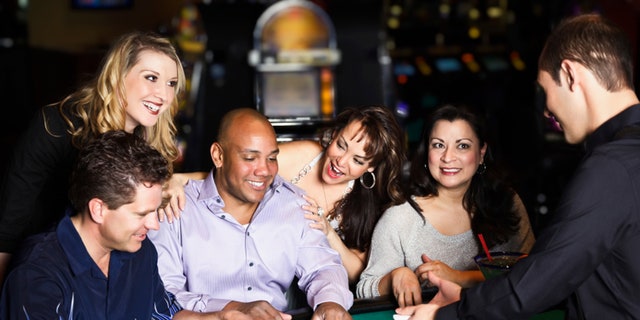
It’s common knowledge that just about every game you’ll find in a casino is tilted in the house’s favor. But Sal says some games are worse than others. “A lot of these games are designed so that the player can’t win,” says Sal. “That’s why the players have to realize they need to stay away from certain games.”
The top of his list: so-called "carnival games,” which are table games other than the traditional casino fare such as blackjack, craps, and baccarat. “Three-card poker, Let it Ride, Caribbean Stud — all these games have high house advantages where the casino has a strong edge,” Sal says. “People like these games because of the bigger payouts: They get paid 9-to-1, 8-to-1, 250-to-1. But you’re going to lose a lot more than you’re going to win in those games.”
Sal has particular disdain for Double Exposure Blackjack, which he considers a particular ripoff, thanks to strict rules on when you can double down and the fact that if you tie with the dealer without a blackjack, the dealer wins. “That’s over a 9 percent house advantage,” Sal says. “The dealer should be wearing a [robber’s] mask when he deals that game!”
2. Some games are “good” games — or at least better.
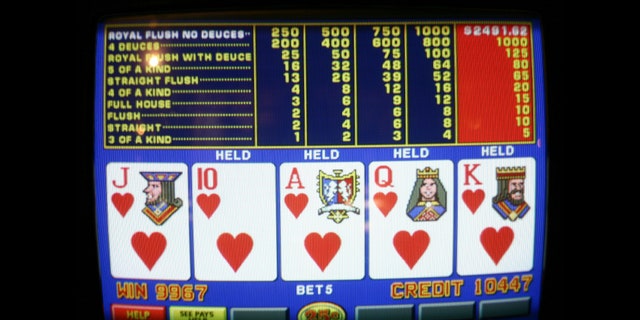
“There are games tourists can play that they have better chances at,” says Derk Boss, a licensed Nevada private investigator and casino security surveillance expert. For one, he points to traditional blackjack. “You can reduce the house advantages by being a skilled player or studying the game,” he says. He also likes video poker. “That’s a game where there are strategies you can study,” he says. “It doesn’t guarantee you’re going to win, but it gives you a much better chance. It’s going to reduce the house advantage and put things a little bit more in your favor.”
3. Everything you see is designed to keep you in the casino.

A couple of gamblers drinking a glass of champagne (iStock)
Anyone who’s spent time in a casino knows they are designed to make sure you’ll lose track of the time (and of the money you’re probably losing). That means no windows and no clocks. “Two in the morning is the exact same thing as two in the afternoon,” says Sal. Some casinos have gone to desperate, and sexy, measures to keep you there and gambling. “They have stripper poles, they have party pits,” Sal says. “You go to Vegas right now, it looks like a gentlemen’s club. You see girls dancing on the poles. It keeps the guys at the table.”
And don’t be fooled by the “free” food and drink offers you might get. Those have the same purpose. “I love when people say, ‘Sal, they gave me a $20 buffet for free!’” Sal says, laughing. “You sat at a blackjack table, you lost $200 and they gave you a $20 buffet.” That’s what you all a good return on investment.
4. Security is probably watching you… for your entire stay.
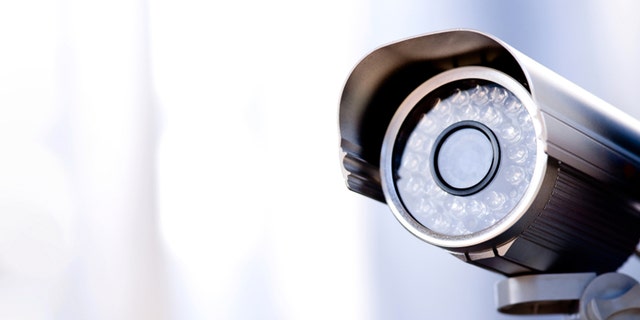
If you’re in a casino, you can assume you’re being watched. “Casinos are very well-covered with surveillance cameras,” says Derk. “Once someone arrives at our property, if we needed to put together their movements over their entire stay, we could easily do so. We would be able to track their movements on the property just about wherever they went — except for like the bathroom and into their hotel room.”
Casinos generally use surveillance to look out for criminals who prey on tourists and the cheaters. And, yes, Derk says they can actually zoom in on your cards if they wanted to. So somewhere in the casino, in a locked, high-tech room, a security guard you’ll never see might be telling you to “hit.”
5. And if you win big, they’re definitely watching you.
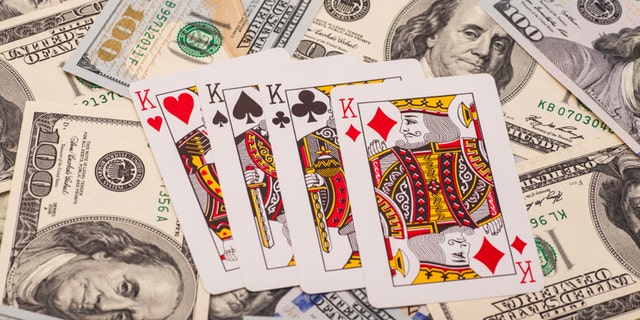
You can bet on it: if you hit a big jackpot, or get on a major hot streak, security has its eyes on you. “When someone is winning a lot of money, they’re always going to get checked by us,” Derk says. “They’re not going to know it, of course. Say a guy wins $100,000 on a blackjack game. I just want to make sure that it’s legal, that he didn’t cheat, that he didn’t count cards or something like that.”
Derk says in that instance, security will do a player evaluation: They will review his/her play on video for signs of cheating or card counting. Then they’ll check out the player. “We have a database of bad guys that are out there and what kind of scams they pull, so we’re gonna check for that,” Derk says.
Slot winners get the same scrutiny. “Say someone wins $500,000 on a slot machine jackpot,” says Derk. “We’re going to review it but we’re just going to make sure everything’s okay — that they didn’t open the machine or do something to it.”
But don’t worry: Security isn’t out to harass winners. “As long as it’s legitimate, we’re okay and we move on,” Derk says. “We want people to win money or else they won’t play.”
6. If you’re cheating, security can tell — they know all the signs.
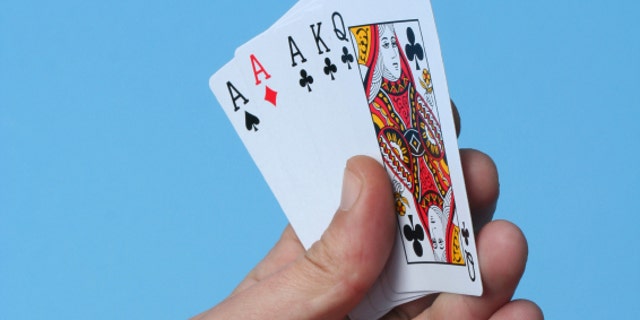
Gambling and cheating. Ace of hearts from the sleeve (iStock)
Poker players know all about “tells,” behaviors that give away a certain action or intention. Card counters and cheaters have tells, too, and security is on the lookout for all of them. “We look for cheating tells,” says Derk. “Those are just behaviors that, when you’re trained to spot them, they stand out a little bit.” While Derk didn’t want to give away too many of these tells, he did spill a few of them:
--Two guys sitting close together — Derk says two guys playing blackjack at the same table rarely sit close together, especially when there are empty seats. “Most guys just don’t sit like that,” he says. “Women will, most guys will not.” Derk says when you do see that, it’s a potential sign that the pair may be secretly switching cards. “They’re trying to make one strong hand — which, believe me, happens,” he says. “They sit close together and have their arms folded after they’re handed their cards. We suspect that [indicates] they’re switching cards, so that’ll get our attention.”
--Strange or extreme money management — Say someone is betting $100 for three or four hands, then from out of nowhere, bets $10,000. “That to us is an indicator that maybe they’re receiving information,” says Derk. “Maybe they can see the hole card, maybe they’re card counting, maybe they’re tracking a clump of cards. They’re waiting for a certain condition to arrive in the game, so they’re going to play minimally until that change happens and once that happens they’ll hit.” Derk says that’s a major red flag.
--“Rubber-necking” — A dead giveaway of a slot machine saboteur. “If somebody is cheating a slot machine, invariably, they’ll sit at it and they don’t really have to look at the machine because they know what they’re going to cause it to do,” says Derk. “So they’re usually looking around, from one side to the other, looking for security. That’s what we call 'rubber-necking.’ That’s a big tell for us because [normal] slot players don’t do that — they play their machine and they don’t want to be bothered. So if you look around like that, that’s going to get out attention and we’ll stop to figure out why.
7. One place the casino probably isn’t watching you too closely: the poker rooms.
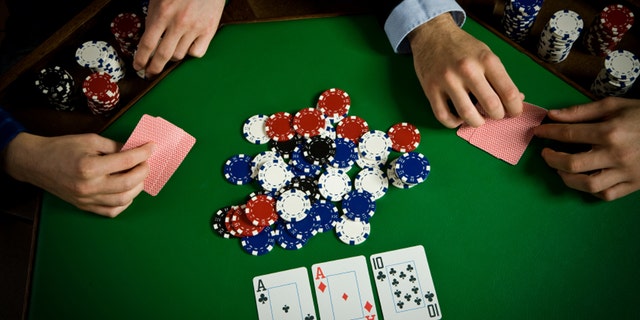
“Believe it or not, we don’t spend a whole lot of time on poker at all,” says Derk. For one, since poker players play against each other, and not the house, the casino doesn’t have much money at stake. The poker players themselves, do, however, and that’s the second reason why casino security staffers don’t need to monitor poker rooms that closely.
“The players really police themselves,” Derk says. “When you get people who play poker all the time, they know when someone is screwing off or trying to take advantage of something and they’ll say something. They pay attention to it better than anybody.”
8. Dealers would rather you bet your tips for them.
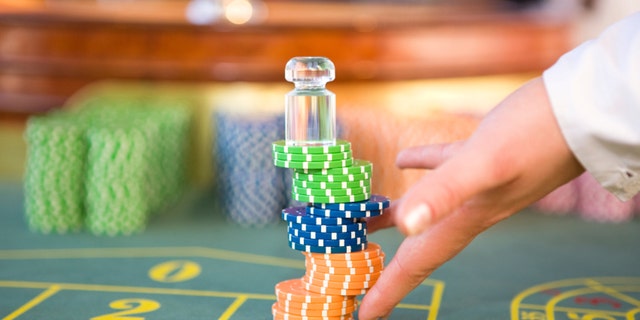
It’s a basic bit of casino etiquette, but tip your dealers. “Dealers make minimum wage or in some places might make a little bit more than minimum wage,” says Sal. “A dealer’s salary is all tips.”
Sal’s wife and business partner, Dee — a former casino dealer herself — agrees. But she says that despite common casino policy, most dealers would prefer that, instead of handing them a chip or two as a tip, players just put the tip up as a bet. “If a player asks you if you want to bet it or if you just want to take the tip, you’re supposed to just take the tip,” Dee says. “But most of us want to bet it because you have chance of doubling your money.”
9. The dealers feel bad for you.
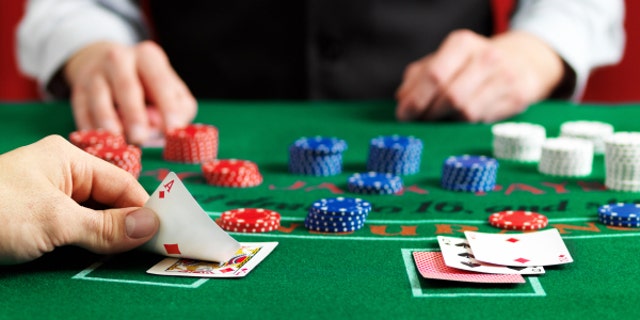
When someone loses their shirt, you can expect some silent pity, but not much else. “I can feel sorry for the guy, but I can’t say, 'Sir, you’ve lost enough, you’d better walk away,’” Sal says. “It’s not my job. There’s nothing I can do.”
Still, Sal admits dealers do find themselves following the players’ success, or lack thereof. “If a guy’s tipping, you don’t want him to lose,” he says. “If a guy’s not tipping, you’re rooting for him to lose!”
10. Yes, dealers sometimes steal.
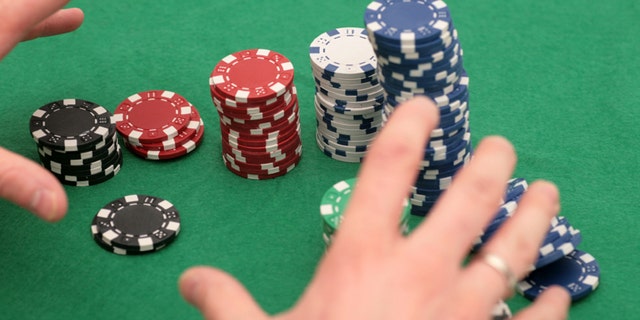
What’s the most common case of casino malfeasance Sal has dealt with? Hint: It’s not 11 tech-savvy scammers led by George Clooney. “This is not as Hollywood as you would think, but honestly, it’s dealers just reaching in, grabbing a chip and shoving it in their pocket,” Sal says. “Nothing sophisticated.” That’s the reason behind all those strange rituals you may see dealers do. “Everything the dealers do was put in place for a reason,” Sal says. For example, when a dealer leaves a table, they have to “clear their hands.” “They clap their hands and turn their hands palm up and palm down for the camera to show, 'I’m not stealing nothing,’” says Sal.
If a dealer is stealing, Sal says there are many different ways security will handle it, depending on where the casino is. “In Vegas, they’ll arrest you right at a table,” he says. “They’ll actually handcuff and walk you right out so everybody gets to see you. They call it 'The Walk of Shame.’ Some places, they don’t want the negative publicity. They’d rather do it off the game. So maybe they’ll call you to the manager’s office and arrest you there.”
Sure, it’s no secret that in a casino, the game is rigged, numerically, at least. “The longer you’re there, the more the numbers are going to take over and the casino’s going to make money,” says Dee. “Let’s be realistic; they’re in it to make money.” But even though we know the score, that doesn’t take away from how much fun casinos are. “People come there to have a good time,” says Dee. “So if you’re having a good time along the way and you win a few bucks or you lose a few bucks, great.”
Coronavirus Prevention Tips: A Guide for Live Poker Players

We understand this is not your usual PokerNews article. However, the latest news about the coronavirus (2019-nCoV) epidemic convinced us of the opportunity to discuss the issue with our readers. Here we offer a few proven prevention tips to those travelling the circuit to play live poker.
On January 29, British Airways announced the decision to stop all flights to and from China as a precautionary response to the coronavirus outbreak.
As reported by the Wall Street Journal's reporter Stephanie Yang, the decision came as several countries started to repatriate citizens located in the most at-risk areas of Mainland China.
Nearly a month since the World Health Organization (WHO) reported on the first cases of pneumonia caused by an unknown virus in China's province of central Hubei, the coronavirus has infected people in 12 different countries.
Although WHO Director Tedros Adhanom Ghebreyesus explains the outbreak "has not yet become a global health emergency," we believe this top be a good time to look at a few basic prevention measures we can all adopt to avoid the infection.
The online poker festival features 34 action-packed tournaments with more than $1.4 million in guaranteed prizes.
What Does This Have to Do with Poker?
Poker players are not more exposed to the risks of coronavirus' infection than anyone else — although there are some circumstances where a few simple measures can make a big difference.
Live tournament poker is as safe as it has ever been. In terms of health hazards, playing at a live tournament event is no different than standing on a subway train or queuing for a frappuccino at Starbucks.
So, why an article about coronavirus prevention tips for poker players?
In its first reports of clinical data from initial cases of the 2019 novel coronavirus, Lancet shares that "education campaigns should be launched to promote precautions for travellers, including frequent hand-washing, cough etiquette, and use of personal protection equipment (eg, masks) when visiting public places."
To follow up on Lancet's suggestion, we decided to share with all of you a series of prevention tips that will help you avoid the coronavirus infection, enjoy your live poker games, and focus on the only thing that matter: winning your poker hands.
With more than 200 online tournaments on the schedule and over $10m in guarantees — this is the best poker you can play in February.
Wash your hands frequently
As simple as it sounds, washing your hands frequently is (by far) the most powerful tool in your infection prevention arsenal.
According to the Centres for Diseases Control and Prevention (CDC), the best way to do it is to "wash your hands often with soap and water for at least 20 seconds."
As a poker player, this is particularly important. You are always bound to touch surfaces that have been touched by multiple people.
From the poker chips to the cards at the table, many of the things you will come into contact at a casino are a potential vehicle of germs.
But you don't need to come across something as serious-sounding as the coronavirus to understand it's good to wash your hands every now and then.
Just head to the restroom during the break, put your hands under the water for 20 seconds, and stop worrying about what could happen if you didn't.
P.S. If you don't have time for that, a bit of hand sanitiser will do the trick.
Stop touching your your face [i]that[/I] often
An old article published on November 15, 2012, in the journal Clinical Infectious Diseases reports that "people touch their faces an average of 3.6 times per hour, and common objects an average of 3.3 times per hour."
The same article, which was published long before the coronavirus was even a thing, stresses the fact that "touching your mouth or nose can spread the flu."
Here's a piece of advice, then: don't do it.
When there are viruses around, touching one's mouth and nose is possibly the easiest (and stupidest, perhaps?) way to transfer them between their face and their hand.
Limiting the number of times we touch our nose and mouth is one of the best and most effective ways to prevent "self inoculation" and stay healthy.
And if you are a nail-biter, you now have the perfect excuse to stop this terrible habit.
Cover your cough or sneeze with a tissue
Here's another one that you should be doing anyway, regardless of any risks of serious infections.
Coughing or sneezing on your hand before you touch cards or you play a chip trick? Not cool.
Wiping your hands clean on your trousers (or the back of your chair?) to then restart to fiddle with chips as if nothing has happened? It's beyond 'not cool. Believe me.
Poker is a community card game where we all share many things together. And etiquette has a role in it too.
Coughing and sneezing are fine. Just cover your mouth and nose with a disposable tissue and throw it away.
Don't re-use the same tissue more than once. (yack.) And if you don't want to think about the coronavirus, think about common decency.
You are at the table with other players and a dealer. No one is interested in what's in your tissue — so use it, fold it, and throw it away.
The new 'Aurora' game engine is going to change everything. See what's new on the world's largest poker site.
You can leave the surgical mask at home
On January 28, CNN's Scottie Andrew reported on "a run of surgical masks" in the US due to the coronavirus scare.
Apparently, some major retailers are selling out on basic surgical masks as people feel these can help them reduce the risk of infection.
Planning to get yourself one?
Before you show up at a poker room with a surgical mask on, read this.
"There's no need to wear surgical masks in the US," stated University of California professor and infectious disease expert Dr. Charles Chiu.
"There's no evidence that [wearing face masks] is going to help prevent that infection."
Similarly, a paper by Columbia University, explains how the use of surgical masks is not proven to have any effects in preventing infections and should not be seen as a replacement of the basic persona hygiene measures mentioned earlier.
"Wearing a mask doesn’t mean you should avoid tried and true hygiene practices," Professor of epidemiology at Columbia’s Mailman School of Public Health, Stephen Morse said.
If you want to help yourself and stay healthier, "Wash your hands frequently, keep away from people who are coughing or sneezing, cover your coughs and sneezes, don’t touch your mouth nose, or eyes after touching an object that may be contaminated."
Coronavirus Prevention Tips: A Guide for Live Poker Players
How to be COVID-Safe at the Casino in Canada
Frequently Asked Questions
Updated March 25, 2021
TRAVEL ADVISORY
Local travel restrictions may impact your trip, including requirements that hotels accept essential travelers only and guests comply with self-quarantine guidelines. Be sure to check the specific restrictions for your destination before traveling or contact the hotel directly with questions.
In light of COVID-19, what steps is Wyndham Hotels & Resorts taking to help protect guests?
In the U.S. and Canada, we’ve launched our Count on Us ℠ initiative to put safety first with elevated cleanliness standards, an expanded relationship with Ecolab for EPA-approved disinfectants, and more.
We have also provided the thousands of independently owned and operated franchised hotels in our network and our managed and owned properties worldwide with helpful guidelines and safety information provided by the U.S. Centers for Disease Control and Prevention (CDC) detailing how to identify COVID-19 symptoms and mitigate its transmission. In addition, we’ve made training available to support our franchisees and our managed and owned hotels in achieving the highest standards of cleanliness.
While our hotels are implementing new health and safety protocols, we cannot guarantee that you won’t be exposed to COVID-19 during your visit. Exposure to COVID-19 is an inherent risk at any hotel where team members and guests are present.
Are masks or face coverings required at individual hotels?
Yes, effective August 10, 2020, our U.S. and Canada hotels require that guests and all other individuals entering the hotel wear a mask or face covering when in indoor public areas (including the lobby, elevators, guestroom hallways, meeting and event spaces, restaurant, bar, and fitness center) and additionally as required by applicable law. Guests are required to provide their own mask or face covering. Some guests may be exempt from this mandate, including, but not limited to, guests with medical conditions, guests consuming food or beverages in restaurants, guests smoking in designated smoking areas, guests engaged in vigorous physical exercise or using indoor swimming facilities, and children under the age of 2.
What measures are individual hotels taking to enhance cleanliness standards?
Throughout your stay, you’ll observe more frequent cleaning and disinfecting of high-touch areas like lobbies and elevators, as well as enhanced social distancing measures in public spaces. Plus, over the coming weeks, you’ll be offered disinfecting wipes with your key card at check-in and complimentary travel-size hand sanitizer for each room at our U.S. and Canada hotels. Both are subject to product availability.
What are Ecolab EPA-approved disinfectants and what does Wyndham’s expanded relationship with Ecolab mean for guests?
Ecolab is a global leader in water, hygiene, and infection prevention technologies and services, and through its science-based approach, it helps enable hotels to consistently achieve the highest cleaning standards. Through the expansion of our relationship with Ecolab, we will require use of its EPA-approved disinfectants in guest rooms and public spaces at all U.S. and Canada hotels.
Are there any travel restrictions I should be aware of during this time?
For the most up-to-date information, please consult travel advisories and information made available by the World Health Organization (WHO), U.S. Centers for Disease Control and Prevention (CDC), and the U.S. Department of State. We will continue to closely monitor the situation and adapt our policies accordingly. To reach out to any of the above organizations, please use the contact numbers below:
WHO: 202-974-3000
CDC: 800-CDC-INFO (800-232-4636)
U.S. Department of State: 202-647-6575
Will individual hotels be implementing new safety protocols?
Yes, due to the current situation with COVID-19, our hotels are implementing new processes to help protect the safety of guests and team members. This may result in a change in certain services and amenities that are normally available at our hotels. Those traveling to hotels located in areas that are allowing only “essential travelers” are required to comply with all guidelines and restrictions and may be required to provide identification establishing that they are “essential travelers.”
We kindly ask all guests to refrain from traveling if they are experiencing any COVID-19 symptoms, such as fever, cough, or shortness of breath, and to advise hotel management immediately if they begin to experience any symptoms while on property. In public areas of the hotel, all hotel guests in the U.S. and Canada are required to wear a mask or face covering when in indoor public areas, and we ask that you maintain social distancing of 6 feet from other guests.
What can planners expect as additional precautions to help protect the health and safety of group guests or meeting attendees?
In addition to social distancing, new measures are in place at U.S. and Canada hotels to give you peace of mind to gather in person. Among these new protocols are updated food and beverage service practices that comply with local guidelines from health organizations and meeting rooms with the latest technology to help provide a seamless experience for virtual attendees taking part in hybrid meetings (additional cost for the technology to power the hybrid meeting). Click here to visit our Wyndham Business page for group and meeting planners and watch the video to see these new policies in action.
Who should I contact if I have questions or concerns about a specific hotel?
Please contact the hotel directly. Telephone numbers can be found on each hotel’s detail page and in booking confirmation messages.
Can I cancel or change my reservation without a penalty?
- For direct bookings made on or after June 6, 2020, with stays after June 30, 2020, please check the “Additional Rate Details” link on the Rooms & Rates page or “Cancellation & Rate Details” link on the Booking page for applicable terms and/or exclusions. While many rates have flexible cancellation policies, there are some rates which are non-cancellable.
- For direct bookings made before June 6, 2020, for stays after June 30, 2020, all of our properties are required to accommodate non-cancellable rate reservation changes if the request is received at least 48 hours prior to arrival and the same number of room nights or more are booked for a future stay.
- Guests who are prohibited from traveling to their booked hotel under applicable law will have their cancellation or change penalties waived on direct bookings.
- If your reservation was made as part of a group booking—such as a conference, meeting, or event—the cancellation policies outlined above do not apply. If you have a group reservation, please review the terms and conditions for the booking and/or contact the group planner for more information.
What if I made my reservation through a travel agent or online booking platform?
For bookings made by a travel agent or online booking platform, guests are advised to contact the agent or booking platform directly.
WYNDHAM REWARDS POINTS & MEMBERSHIP
What will happen to my Wyndham Rewards points that are set to expire?
We are pausing the expiration of any Wyndham Rewards points until June 30, 2021.
Was my Wyndham Rewards member level extended?
Yes. Any member’s member level that was otherwise set to expire on December 31, 2020, was extended to December 31, 2021.
Can I unlock new member levels faster in 2021?
Yes. We're offering members the ability to reach new member levels faster in 2021. For more information and to see whether this offer can help you reach the next member level in 2021, click here.
So, let's define, what was the most valuable conclusion of this review: Travelling the circuit to play live poker? Here's a collection of quick tips you can follow to stay healthy and reduce the risk of coronavirus infection. at How to be COVID-Safe at the Casino in Canada
Contents of the article
- Coronavirus Prevention Tips: A Guide...
- What Does This Have to Do with Poker?
- Wash your hands frequently
- Stop touching your your face...
- Cover your cough or sneeze with a tissue
- You can leave the surgical mask at home
- COVID-19 Information
- The Return of Live Casinos Ensure a...
- How to ward off coronavirus in your...
- Head straight to the sink
- Get out the wipes
- Ditch the comforter
- Bottom line
- Infectious Disease Expert: Casinos...
- Considerations for Casinos and Gaming...
- Guiding Principles to Keep in Mind
- Know How the Virus Spreads
- Promoting Behaviors that Reduce Spread
- Maintaining Healthy Environments
- Maintaining Healthy Operations
- Preparing for When Someone Gets Sick
- Top 10 secrets casinos don’t want you...
- 1. Some games are way more of a ripoff...
- 2. Some games are “good” games — or at...
- 3. Everything you see is designed to...
- 4. Security is probably watching you…...
- 5. And if you win big, they’re...
- 6. If you’re cheating, security can...
- 7. One place the casino probably isn’t...
- 8. Dealers would rather you bet your...
- 9. The dealers feel bad for you.
- 10. Yes, dealers sometimes steal.
- Coronavirus Prevention Tips: A Guide...
- What Does This Have to Do with Poker?
- Wash your hands frequently
- Stop touching your your face...
- Cover your cough or sneeze with a tissue
- You can leave the surgical mask at home
- How to be COVID-Safe at the Casino in...
No comments:
Post a Comment
Note: Only a member of this blog may post a comment.